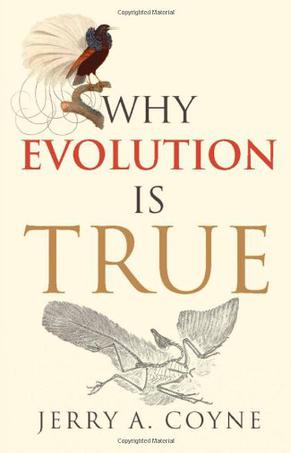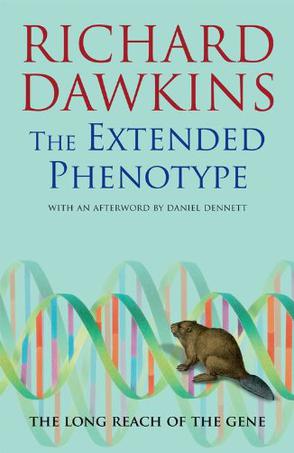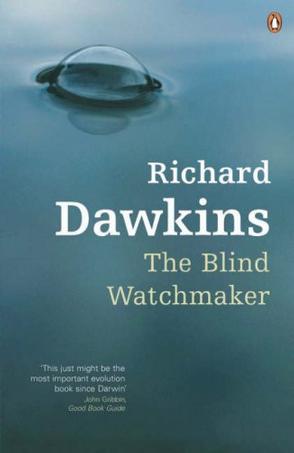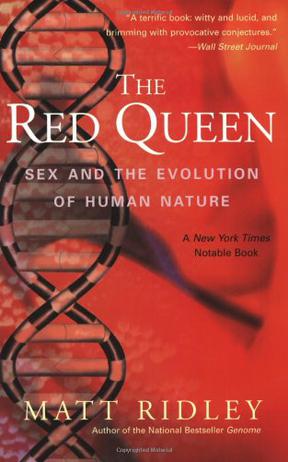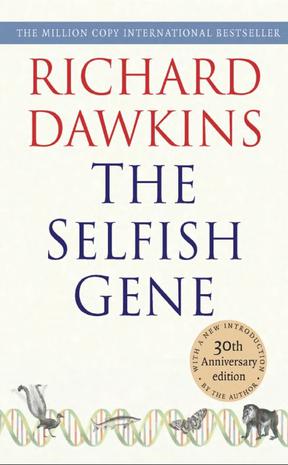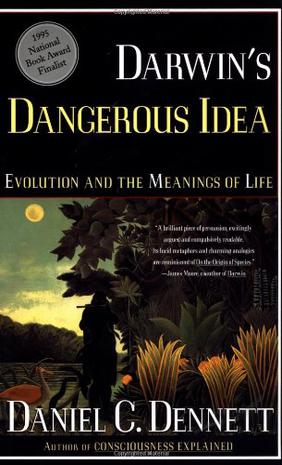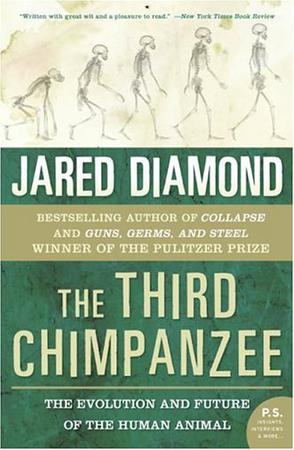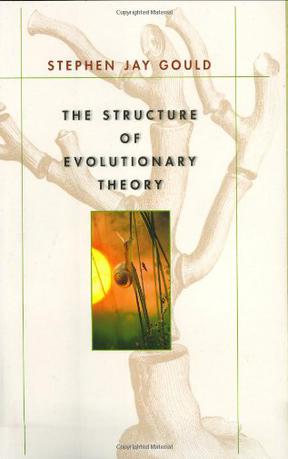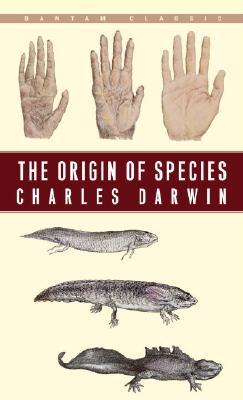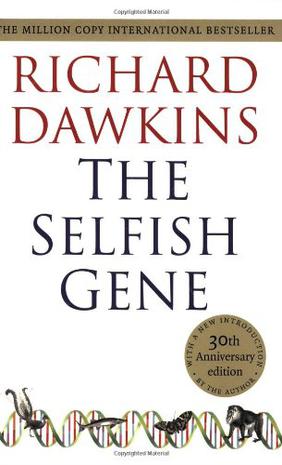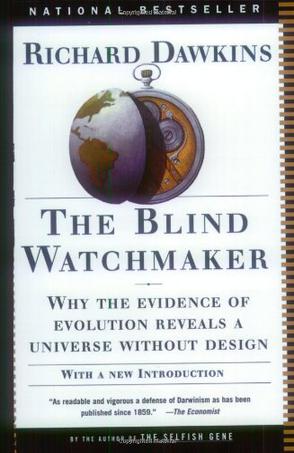欢迎来到相识电子书!
标签:evolution
-
The Extended Phenotype
This is a revised edition with a new afterword by Daniel Dennett. The Extended Phenotype carries on from where The Selfish Gene takes off. It is a fascinating look at the evolution of life and natural selection. Dawkins's theory is that individual organisms are replicators that have extended phenotypic effects on society and the world at large, thus our genes have the ability to manipulate other individuals. A worldwide bestseller, this book has become a classic in popular science writing. -
The Blind Watchmaker
Acclaimed as the most influential work on evolution written in the last hundred years, "The Blind Watchmaker" offers an inspiring and accessible introduction to one of the most important scientific discoveries of all time. A brilliant and controversial book, which demonstrates that evolution by natural selection - the unconscious, automatic, blind, yet essentially non-random process discovered by Darwin - is the only answer to the biggest question of all: why do we exist? -
The Red Queen
The read queen 就是Through the Looking Glass and What Alice Found There里面的那个红色的皇后(棋子). -
The Selfish Gene
最能代表二十世纪的百大好书之一 像小说般精采的科普书,全球畅销百万册 任何生物,包括我们,都只是求生机器, 暗地里已被输入某些程式,用来保养那些叫做基因的自私分子。 这么说来,我们不都成了基因的俘虏? 种种行为早已由基因命定?真是这样吗? 如果您不愿意成为基因的俘虏,就请先了解《自私的基因》。 这本书充满想像力,就像科幻小说…… 任何生物,包括我们,都只是求生机器, 暗地里已被输入某些程式, 用来保养那些叫做基因的自私分子。 这么说来,我们不都成了基因的俘虏? 但这本书却是实实在在的科学…… 动物也会实施家庭计画? 父母对子女的照顾,会有大小眼吗? 雌性择偶为何比雄性更小心? 工蚁凭什么要为女蚁王卖命? 好人真的会出头吗? 从「自私的基因」观点出发,这些问题全都可以找到答案。 名人推荐 《自私的基因》这本科普书, 让每一位读者读来,都觉得自己一定是个天才。 《纽约时报》 这本书寓意深厚、机敏流露, 实在写得太好了…… 令人忍不住拍手叫好! 梅达华(Peter Medawar),诺贝尔生理医学奖得主 讨论演化的科普书很常见;好的科普书很罕见。 而道金斯的书,堪称绝佳之作。 查诺夫(Eric L. Charnov),《生物评论季刊》 Inheriting the mantle of revolutionary biologist from Darwin, Watson, and Crick, Richard Dawkins forced an enormous change in the way we see ourselves and the world with the publication of The Selfish Gene. Suppose, instead of thinking about organisms using genes to reproduce themselves, as we had since Mendel's work was rediscovered, we turn it around and imagine that "our" genes build and maintain us in order to make more genes. That simple reversal seems to answer many puzzlers which had stumped scientists for years, and we haven't thought of evolution in the same way since. Why are there miles and miles of "unused" DNA within each of our bodies? Why should a bee give up its own chance to reproduce to help raise her sisters and brothers? With a prophet's clarity, Dawkins told us the answers from the perspective of molecules competing for limited space and resources to produce more of their own kind. Drawing fascinating examples from every field of biology, he paved the way for a serious re-evaluation of evolution. He also introduced the concept of self-reproducing ideas, or memes, which (seemingly) use humans exclusively for their propagation. If we are puppets, he says, at least we can try to understand our strings. --Rob Lightner --This text refers to an out of print or unavailable edition of this title. -
Darwin's Dangerous Idea: Evolution and the Meanings of Life
One of the best descriptions of the nature and implications of Darwinian evolution ever written, it is firmly based in biological information and appropriately extrapolated to possible applications to engineering and cultural evolution. Dennett's analyses of the objections to evolutionary theory are unsurpassed. Extremely lucid, wonderfully written, and scientifically and philosophically impeccable. Highest Recommendation! -
The Third Chimpanzee
The Development of an Extraordinary Species We human beings share 98 percent of our genes with chimpanzees. Yet humans are the dominant species on the planet -- having founded civilizations and religions, developed intricate and diverse forms of communication, learned science, built cities, and created breathtaking works of art -- while chimps remain animals concerned primarily with the basic necessities of survival. What is it about that two percent difference in DNA that has created such a divergence between evolutionary cousins? In this fascinating, provocative, passionate, funny, endlessly entertaining work, renowned Pulitzer Prize–winning author and scientist Jared Diamond explores how the extraordinary human animal, in a remarkably short time, developed the capacity to rule the world . . . and the means to irrevocably destroy it. -
The Structure of Evolutionary Theory
The world's most revered and eloquent interpreter of evolutionary ideas offers here a work of explanatory force unprecedented in our time--a landmark publication, both for its historical sweep and for its scientific vision. With characteristic attention to detail, Stephen Jay Gould first describes the content and discusses the history and origins of the three core commitments of classical Darwinism: that natural selection works on organisms, not genes or species; that it is almost exclusively the mechanism of adaptive evolutionary change; and that these changes are incremental, not drastic. Next, he examines the three critiques that currently challenge this classic Darwinian edifice: that selection operates on multiple levels, from the gene to the group; that evolution proceeds by a variety of mechanisms, not just natural selection; and that causes operating at broader scales, including catastrophes, have figured prominently in the course of evolution. Then, in a stunning "tour de force" that will likely stimulate discussion and debate for decades, Gould proposes his own system for integrating these classical commitments and contemporary critiques into a new structure of evolutionary thought. In 2001 the Library of Congress named Stephen Jay Gould one of America's eighty-three Living Legends--people who embody the "quintessentially American ideal of individual creativity, conviction, dedication, and exuberance." Each of these qualities finds full expression in this peerless work, the likes of which the scientific world has not seen--and may not see again--for well over a century. -
The Origin of Species
The publication of Darwin's The Origin of Species in 1859 marked a dramatic turning point in scientific thought.The volume had taken Darwin more than twenty years to publish, in part because he envisioned the storm of controversy it was certain to unleash. Indeed, selling out its first edition on its first day, The Origin of Species revolutionized science, philosophy, and theology.Darwin's reasoned, documented arguments carefully advance his theory of natural selection and assertion that species were not created all at once by a divine hand but started with a few simple forms that mutated and adapted over time. Whether commenting on his own ill health, discussing his experiments to test instinct in bees, or relating a conversation about a South American burrowing rodent, Darwin's monumental achievement is surprisingly personal and delightfully readable. Its ideas remain extremely profound even today, making itthe most influential book in the natural sciences ever written-a work not just important to its time, but to the history of humankind. -
The Selfish Gene
Richard Dawkins' brilliant reformulation of the theory of natural selection has the rare distinction of having provoked as much excitement and interest outside the scientific community as within it. His theories have helped change the whole nature of the study of social biology, and have forced thousands of readers to rethink their beliefs about life. In his internationally bestselling, now classic volume, The Selfish Gene , Dawkins explains how the selfish gene can also be a subtle gene. The world of the selfish gene revolves around savage competition, ruthless exploitation, and deceit, and yet, Dawkins argues, acts of apparent altruism do exist in nature. Bees, for example, will commit suicide when they sting to protect the hive, and birds will risk their lives to warn the flock of an approaching hawk. This 30th anniversary edition of Dawkins' fascinating book retains all original material, including the two enlightening chapters added in the second edition. In a new Introduction the author presents his thoughts thirty years after the publication of his first and most famous book, while the inclusion of the two-page original Foreword by brilliant American scientist Robert Trivers shows the enthusiastic reaction of the scientific community at that time. This edition is a celebration of a remarkable exposition of evolutionary thought, a work that has been widely hailed for its stylistic brilliance and deep scientific insights, and that continues to stimulate whole new areas of research today. -
The Blind Watchmaker
The title of this 1986 work, Dawkins's second book, refers to the Rev. William Paley's 1802 work, Natural Theology, which argued that just as finding a watch would lead you to conclude that a watchmaker must exist, the complexity of living organisms proves that a Creator exists. Not so, says Dawkins: ”All appearances to the contrary, the only watchmaker in nature is the blind forces of physics, albeit deployed in a very special way... it is the blind watchmaker.” ...
热门标签
下载排行榜
- 1 梦的解析:最佳译本
- 2 李鸿章全传
- 3 淡定的智慧
- 4 心理操控术
- 5 哈佛口才课
- 6 俗世奇人
- 7 日瓦戈医生
- 8 笑死你的逻辑学
- 9 历史老师没教过的历史
- 10 1分钟和陌生人成为朋友

